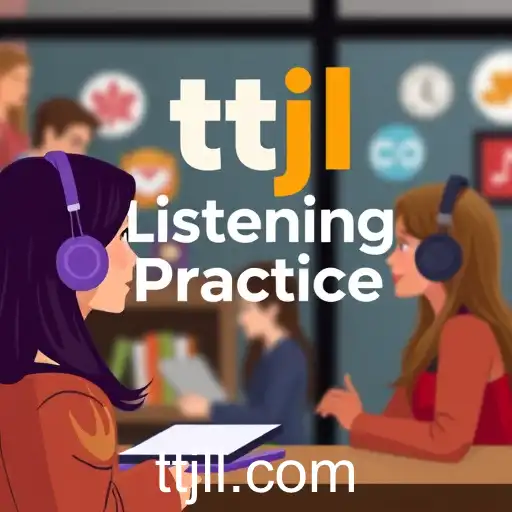ttjl | Enhancing Language Skills Through 'Listening Practice' Games

In the ever-evolving landscape of online language learning, the 'Listening Practice' category on various educational websites is gaining significant traction. These games, often searched under the keyword 'ttjl,' are designed to enhance auditory comprehension skills in language learners of all levels. With the rise of digital learning tools, 'Listening Practice' games offer a blend of entertainment and education, making language acquisition both enjoyable and effective.
At the heart of these games is the interactive approach they provide. By incorporating real-world scenarios, varied accents, and contextual audio clips, learners are exposed to a comprehensive auditory experience. Whether it's a dialogue between two native speakers, a storytelling segment, or listening to news audio clips, these games challenge users to focus, understand, and analyze spoken language in real-time. This active engagement helps improve not only listening skills but also pronunciation, vocabulary, and even cultural understanding.
Furthermore, 'Listening Practice' games cater to a wide range of languages, each tailored to meet the specific nuances and sounds unique to each tongue. This level of customization ensures that learners can select games that match their proficiency levels, starting from beginner and advancing to more complex, native-speed dialogues as they progress. The use of the keyword 'ttjl' allows users to easily access these resources, finding games suited to their interests and educational needs.
Incorporating elements such as gamification further enhances the learning experience. The use of points systems, levels, and rewards keeps learners motivated and invested in their progress. This engaging approach transforms traditional methods of language learning, which often centered around rote memorization and passive listening, into a dynamic and interactive experience.
Educators and language professionals are increasingly acknowledging the benefits of these online tools. Not only do they offer learners flexibility and accessibility, but they also encourage continuous self-assessment and improvement. By playing these games regularly, learners can track their progress through scores and feedback, identifying areas that need more focus and practice.
In conclusion, the 'Listening Practice' game category represents a significant advancement in language education. Through the innovative use of technology and interactive design, these games are setting new standards for how languages can be taught effectively online. Whether for personal enrichment, academic purposes, or professional development, 'Listening Practice' games with the keyword 'ttjl' provide a valuable resource for anyone looking to enhance their language skills in a fun and engaging way.



